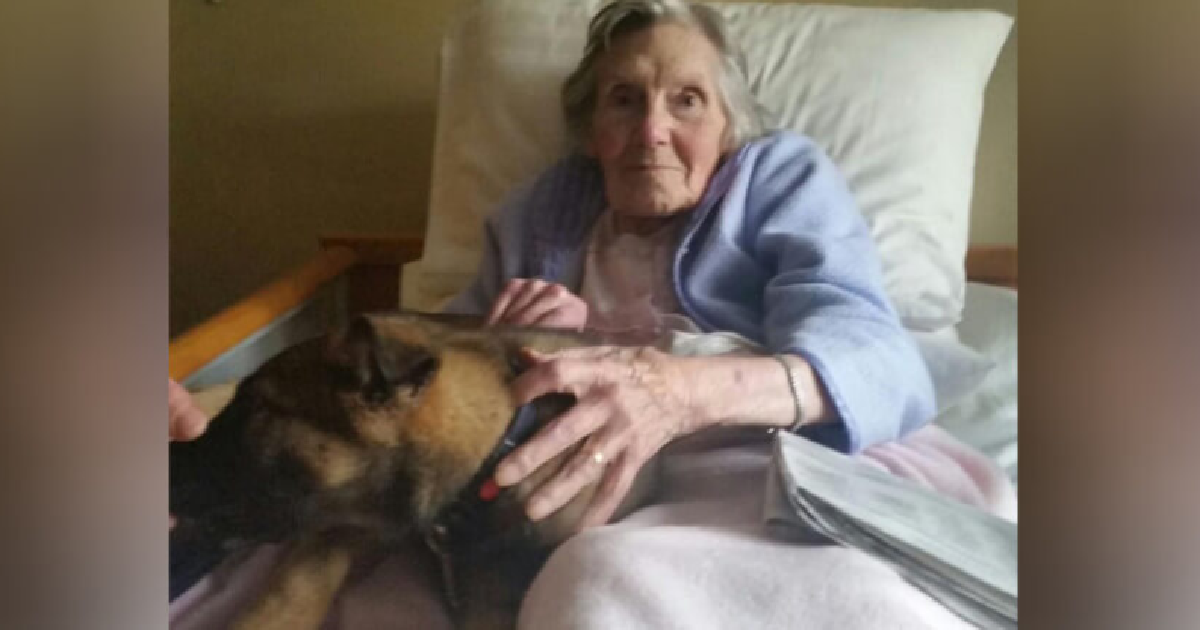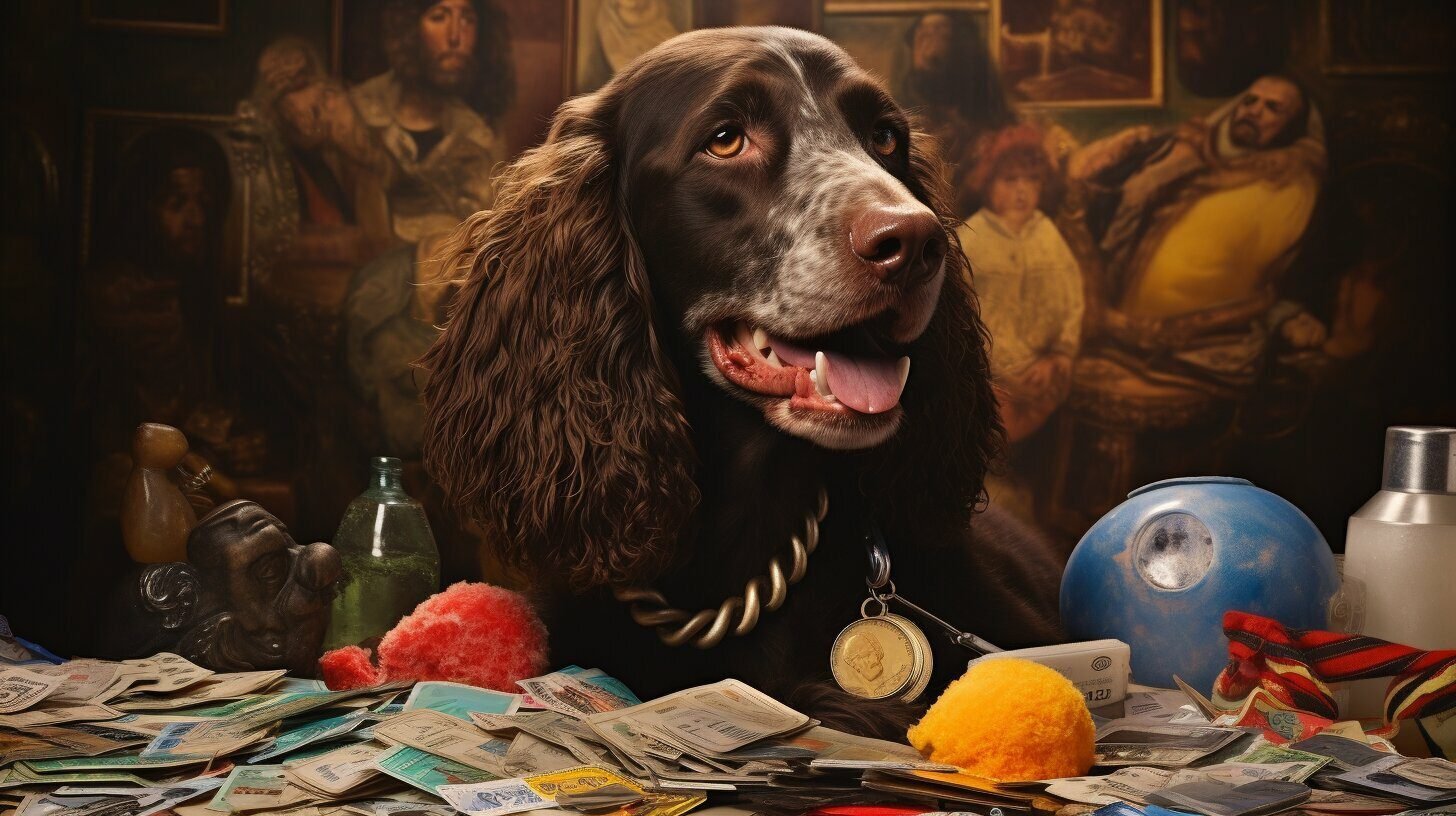Giant Schnauzers are a breed known for their intelligence and are often considered one of the smartest dog breeds. With their working dog heritage, they have a long history of driving cattle, working in butcher shops, and even guarding breweries.
Their intelligence and drive make them a loyal and courageous companion for those who provide them with the training, exercise, and attention they need. Due to their high intelligence, they are highly trainable but also require consistent and firm handling to reach their full potential.
Giant Schnauzers belong to the Working Group and have a lifespan of around 12 to 15 years. Their coat is harsh and wiry, requiring moderate maintenance. However, their intelligence and high energy levels make regular exercise and mental stimulation essential for their well-being.
Are Giant Schnauzers Smart
- Giant Schnauzers are considered one of the smartest dog breeds.
- They have a working dog heritage and require training and exercise to thrive.
- Their intelligence makes them highly trainable, but consistent handling is necessary.
- Regular exercise and mental stimulation are essential for their well-being.
- They belong to the Working Group and have a lifespan of 12 to 15 years.
The Importance of Temperament in Giant Schnauzers
The temperament of Giant Schnauzers plays a crucial role in their breed standardization and overall characteristics. As working dogs with a rich heritage, their temperament should align with their inherent traits and abilities. Originally bred for cattle herding, their role later expanded to include police and army work, showcasing their intelligence and versatility. The breed standard emphasizes various traits, such as protectiveness, confidence, alertness, intelligence, and reliability.
Protectiveness is an essential aspect of the Giant Schnauzer temperament, stemming from their origin as cattle-driving and guarding dogs. This instinctive protectiveness, combined with their confidence, forms the foundation of their temperament. A confident Giant Schnauzer is composed, watchful, and exhibits courage when faced with challenging situations. Their temperament enables them to be easily trained and deeply loyal to their family.
In a temperament comparison with other working breeds within the larger working group, it is crucial to consider the standardized characteristics of each breed. While there may be similarities, it is important to recognize that every breed has its unique temperament traits and variations.
However, extreme shyness has no place in the Giant Schnauzer breed. Their temperament should reflect their ability to be playful and amiable in repose, yet exhibit a commanding figure when aroused. Shyness and fear biting are considered temperament faults and are considered undesirable in the breed. Aggression, likewise, is not in alignment with the breed’s temperament.
Giant Schnauzer Temperament
The temperament of a Giant Schnauzer can be summarized as:
- Protective
- Confident
- Spirited
- Alert
- Intelligent
- Reliable
| Trait | Description |
|---|---|
| Protectiveness | Innate instinct to protect their family and territory |
| Confidence | Displays composure and fearlessness in various situations |
| Spirit | Energetic and lively, with a playful nature |
| Alertness | Highly aware of their surroundings, making them excellent watchdogs |
| Intelligence | Quick to learn and process information, making them highly trainable |
| Reliability | Consistent in behavior and temperament, ensuring dependability |
A Giant Schnauzer’s temperament contributes to their suitability as a loyal and protective companion. The combination of their protective nature, confidence, and intelligence makes them an excellent working dog and a devoted family member.
Selecting a Giant Schnauzer Breeder or Rescue
When considering adding a Giant Schnauzer to your family, you have two options: adopting from a rescue organization or finding a reputable breeder. Adopting from a rescue organization not only provides a loving home to a dog in need, but it also gives you the opportunity to make a difference in the life of a Giant Schnauzer. However, if you decide to go the route of finding a Schnauzer puppy, it is crucial to choose a reputable breeder who follows ethical breeding practices.
A reputable breeder prioritizes the health and temperament of their dogs, ensuring that the breeding pair is free from genetic health issues and that the puppies receive proper care and socialization in a nurturing environment. They conduct health screenings, such as hip dysplasia and bloat tests, to minimize the risk of passing on genetic health issues to the offspring. By choosing a responsible breeder, you can be confident that you are bringing home a healthy and well-adjusted pup.
| Benefits of Reputable Breeders | Benefits of Rescue Organizations |
|---|---|
|
|
To find a reputable breeder, conduct thorough research, and ask for recommendations from breed clubs or local Giant Schnauzer communities. Visit the breeder’s facility or home to assess the conditions and ensure that the dogs are well-cared for. Ask about the health screenings conducted on the parent dogs and inquire about any known genetic health issues in their bloodlines.
It’s important to note that responsible breeders prioritize the well-being of their dogs and will be happy to answer your questions and provide you with any necessary documentation. They may also have a waiting list or a specific process for selecting their puppies. Be patient and prepared to wait for the right puppy from a reputable breeder.
Once you bring your Giant Schnauzer puppy home, remember to provide regular veterinary care to ensure their continued health and well-being. Giant Schnauzers are prone to certain genetic health issues, so it’s important to stay on top of preventive care and address any health concerns promptly.
Whether you choose to adopt or find a reputable breeder, selecting a Giant Schnauzer breeder or rescue organization is a significant decision. By making an informed choice, you can welcome a loving and healthy companion into your family.
Giant Schnauzers and Apartment Living
While Giant Schnauzers are intelligent and loyal companions, they may not be the best choice for apartment living. They have high energy levels and love to play, which makes them better suited for homes with large yards where they can run and get plenty of exercise.
Apartment life can be challenging for these dogs, and novice trainers should be aware that they require consistent training and firm handling. Additionally, Giant Schnauzers may exhibit a propensity for high energy and frequent barking, making them less suitable for apartment living.
When selecting a dog breed for apartment living, it is crucial to consider factors beyond size. Quiet, low-energy, and sociable breeds are more suitable for apartment living and are less likely to cause disturbances to neighbors.
However, regardless of the breed’s suitability for apartment living, additional training is necessary to help them adapt and behave well in a confined space. With proper training, exercise, and mental stimulation, Giant Schnauzers can still thrive in an apartment setting.

Tips for Apartment Living with a Giant Schnauzer:
- Ensure regular exercise: Dedicate time for walks, play sessions, and mental stimulation activities to help meet their high energy needs.
- Establish a consistent routine: Setting a daily schedule for meals, potty breaks, exercise, and training will provide structure and promote better behavior.
- Train for good manners: Focus on obedience training to instill good behaviors and manage any barking tendencies. Positive reinforcement techniques work best for Giant Schnauzers.
- Create a comfortable environment: Provide a designated area with a cozy bed, toys, and interactive puzzles to keep them mentally stimulated and prevent boredom.
- Socialize from an early age: Expose your Giant Schnauzer to different people, animals, and environments to ensure they become well-adjusted and sociable.
By considering their exercise needs, training requirements, and maintaining a stimulating living environment, apartment living with a Giant Schnauzer can be a rewarding and fulfilling experience for both owner and dog.
Giant Schnauzers and Novice Dog Owners
Giant Schnauzers can present challenges for novice dog owners due to their intelligence and energy levels. However, with proper research, training, and dedication, they can be a good fit for first-time owners.
As a novice owner, it is essential to prioritize training and socialization from an early age to establish boundaries and create a structured routine. Basic obedience training, such as teaching commands like sit, stay, come, and leave it, is crucial for effective communication and building a strong bond with your Giant Schnauzer.
Exposing your dog to various environments, people, and other animals helps prevent behavioral issues and promotes confidence and adaptability. It is important to provide consistent care, patience, and love to ensure a fulfilling and rewarding relationship with your Giant Schnauzer.
Key Considerations for Novice Owners:
- Research and understand the breed’s temperament and care requirements.
- Establish clear boundaries and consistent rules to guide your dog’s behavior.
- Enroll in obedience training classes or seek the guidance of a professional dog trainer.
- Commit to regular socialization opportunities to expose your dog to various stimuli.
- Provide mental and physical stimulation through interactive toys and regular exercise routines.
- Show patience and consistency in your training efforts and daily care.
- Offer an abundance of love and affection to foster a strong bond with your Giant Schnauzer.
By following these guidelines, novice owners can navigate the challenges and enjoy a rewarding and enriching relationship with their Giant Schnauzer.
| Pros for Novice Owners | Cons for Novice Owners |
|---|---|
| Adaptability to different living environments | High energy levels require regular exercise |
| Trainability due to their high intelligence | Need for consistent training and firm handling |
| Temperament that can be molded through early socialization | Challenges in handling their protective instincts |
| Establishment of a strong bond through consistent care and love | Potential for separation anxiety when left alone |
| Opportunity for personal growth and learning as a dog owner | Time commitment required for training and socialization |
Giant Schnauzer Sensitivity Levels
Sensitivity levels in Giant Schnauzers can vary among individuals and breeds. Some dogs are naturally more sensitive, quickly picking up on subtle cues and changes in their surroundings. Highly sensitive dogs may react strongly to loud noises, sudden movements, or changes in routine.
| Sensitivity Levels | Characteristics |
|---|---|
| High Sensitivity | Quickly reacts to loud noises, sudden movements, or changes in routine |
| Low Sensitivity | Tolerates loud noises, sudden movements, and changes in routine with ease |
Creating a calm and comfortable environment for these dogs is essential. Providing predictable routines, positive reinforcement training, mental stimulation, and regular exercise can help alleviate anxiety and reduce sensitivity.

Creating a Calm Environment
Creating a calm environment for Giant Schnauzers involves:
- Minimizing loud noises and sudden movements
- Maintaining consistent routines
- Providing a safe and peaceful space for relaxation
Positive Reinforcement Training
Positive reinforcement training is highly effective in reducing sensitivity levels in Giant Schnauzers. Rewarding desired behaviors with treats, praise, and affection encourages positive associations and builds their confidence.
Mental Stimulation
Giant Schnauzers thrive on mental stimulation to keep their minds engaged. Providing interactive toys, puzzle games, and training activities helps channel their energy and reduces sensitivity by focusing their attention on constructive tasks.
Regular Exercise
Regular exercise is essential for Giant Schnauzers to maintain their physical and mental well-being. Daily walks, play sessions, and interactive activities help burn off excess energy and keep them relaxed and content.
By being aware of their sensitivity levels, owners can tailor their care and training to meet the specific needs of their Giant Schnauzers, ensuring they feel secure and valued members of the family.
Giant Schnauzers and Being Alone
Like all dogs, Giant Schnauzers’ tolerance for being alone can vary greatly depending on their age, temperament, and training. Some dogs may experience separation anxiety or exhibit destructive behaviors when left alone. It is important to create a calm and comfortable environment for them when they are left alone. Providing mental stimulation, toys, and a comfortable space with their favorite bedding can help alleviate any potential distress. Training and acclimating them to being alone gradually can also help them feel secure and reduce anxiety when left alone.
When leaving your Giant Schnauzer alone, it’s essential to consider their temperament and previous experiences. Some dogs may be more prone to separation anxiety due to their natural disposition or past traumatic events. If you notice signs of distress when leaving, such as excessive barking, destructive behavior, or even self-harm, it might be beneficial to consult with a professional dog behaviorist or trainer for guidance.
Creating a calm and comfortable environment for your Giant Schnauzer includes:
1. Calm Environment:
- Choose a quiet and secure area in your home where your dog can have some peace and solitude. Avoid high traffic areas or places with excessive noise.
- Provide a comfortable bed or crate with their favorite bedding to create a cozy and familiar space.
2. Mental Stimulation:
- Leave interactive toys or puzzle feeders that can engage your dog’s mind and provide mental stimulation while they are alone. This can help keep them occupied and prevent boredom.
- Rotate the toys regularly to keep them interesting and prevent them from losing their novelty.
3. Establishing a Routine:
- Stick to a consistent schedule for feeding, exercise, and bathroom breaks. Dogs thrive on routine, and having a predictable routine can help them feel more secure and less anxious when left alone.
- Gradually increase the duration of time your Giant Schnauzer spends alone to help them acclimate to being by themselves. Start with short periods and gradually extend the time as they become more comfortable.
Remember, each dog is unique, and their tolerance for being alone may vary. It’s essential to be patient and understanding as they adjust to being left alone. By providing a calm and comfortable environment, mental stimulation, and gradual training, you can help your Giant Schnauzer feel more at ease and reduce any separation anxiety they may experience.
Conclusion
Giant Schnauzers are remarkable dogs, known for their intelligence, loyalty, and protective nature. They excel as companions, but they do require proper training, exercise, and mental stimulation to thrive. When considering adding a Giant Schnauzer to your family, it is crucial to choose a reputable breeder who prioritizes the health and temperament of their dogs. Alternatively, you can also consider adoption from a rescue organization, providing a loving home to a dog in need.
Novice owners should be aware that Giant Schnauzers require time and effort for training and socialization. Their high intelligence levels make them highly trainable, but they also need consistency and firm handling. Sensitivity levels can vary among individuals, so creating a calm and comfortable environment is essential. While apartment living may not be ideal for these energetic dogs, with proper care and attention, they can be a wonderful addition to the right family.
Giant Schnauzers are intelligent dog breeds that make loyal and devoted companions. They require training, exercise, and mental stimulation to thrive. It is important to choose a reputable breeder or consider adoption, and novice owners should be prepared for the commitment required. With the right care and attention, Giant Schnauzers have the potential to bring great joy and companionship to their families.






